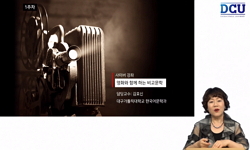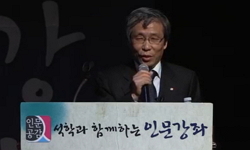Based on his travels across the Middle East and eventual exile in North America, Edward Said makes many assertions on those migrations between ideas and theories, later developed into his popular theoretical model which he terms his “Traveling Theor...
http://chineseinput.net/에서 pinyin(병음)방식으로 중국어를 변환할 수 있습니다.
변환된 중국어를 복사하여 사용하시면 됩니다.
- 中文 을 입력하시려면 zhongwen을 입력하시고 space를누르시면됩니다.
- 北京 을 입력하시려면 beijing을 입력하시고 space를 누르시면 됩니다.


Traveling Theory or Kiao-Iing? Said, Lukacs, and the Transcultural Transmission of Thought-tools = Traveling Theory or Kiao-Iing? Said, Lukacs, and the Transcultural Transmission of Thought-tools
한글로보기https://www.riss.kr/link?id=A100665467
-
저자
( Jun Ye ) (Chinese Academy of Social Sciences)
- 발행기관
- 학술지명
- 권호사항
-
발행연도
2015
-
작성언어
-
- 주제어
-
KDC
800
-
등재정보
KCI우수등재,SCOPUS
-
자료형태
학술저널
- 발행기관 URL
-
수록면
219-229(11쪽)
- DOI식별코드
- 제공처
- 소장기관
-
0
상세조회 -
0
다운로드
부가정보
다국어 초록 (Multilingual Abstract)
Based on his travels across the Middle East and eventual exile in North America, Edward Said makes many assertions on those migrations between ideas and theories, later developed into his popular theoretical model which he terms his “Traveling Theory.” Taking Said’s theoretical inventions into account, this essay re-reads Georg Lukacs so as to speculative on new possibilities for the transmission of ideas into theories, and theories across cultures. Re-reading Said’s Traveling Theory against the grain of what I frame as “Kiao-Iology” (which draws on theoretical resources from Chinese traditional culture, so as to propose a unified schemata of Eastern thinking), this paper seeks to unfold the possibilities for a resituated inter-cultural dialogue, casting new light onto how humans make particular knowledge products (cultural, spiritual, ideological). Through an extra-spatial Kiao-Iological framework, knowledge products can then mutate into new shapes and new tropes when crossing over into newer culturally-situated contexts. In an era of mass production and globalization, this may well be a theory for the times. I seek here to unfold new possibilities for modeling how cross-cultural dialogue takes place, which I hope can provoke new ideas toward thinking on how ideas transmit both spatial-synchronically (that is, within each generation and across cultures) and temporal-diachronically as intergenerational, mobile, historically mutating modes.
동일학술지(권/호) 다른 논문
-
Strange Rhetoric, Enigmatical Grammar, Poetic Logic: Wallace Stevens`s The Auroras of Autumn
- 한국영어영문학회
- ( Kelly S. Walsh )
- 2015
- KCI우수등재,SCOPUS
-
Spiritual Homosociality in 1 Tamburlaine: Free Thinkers` Challenge for the World
- 한국영어영문학회
- ( Hyun Dong Ko )
- 2015
- KCI우수등재,SCOPUS
-
Hawthorne, William James, and the Psychology of Wakefield
- 한국영어영문학회
- ( Joon Hyung Park )
- 2015
- KCI우수등재,SCOPUS
-
- 한국영어영문학회
- ( Mi Seong Woo )
- 2015
- KCI우수등재,SCOPUS




 KCI
KCI KISS
KISS







